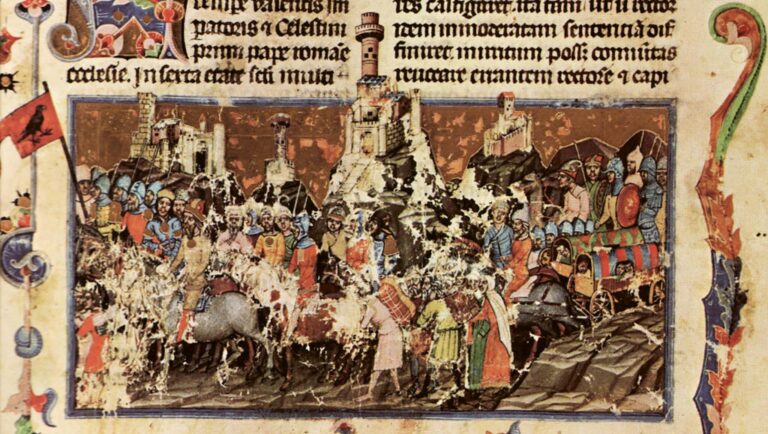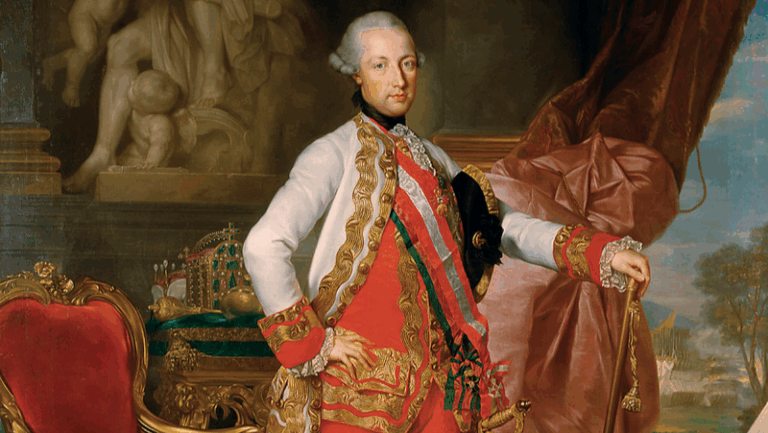Some essential trait of human nature is manifested in every civilizational challenge, and so the crisis phenomena of globalization today show more emphatically than ever before that the diversity of forms of human existence and the continuity of culture depend on permanence in and of places. This is nothing new, as Cicero arrived at a similar conclusion when he visited the olive grove that had once been the site of Plato’s school. One of his fellow travellers, Marcus Pupius Piso called the rhetor’s attention to the fact that one is more deeply touched at places that memorable men have frequented in person than if one simply hears of their deeds or reads their works. People today have just as many reasons to ponder this notion as Cicero had, since this is a universal truth. In our own words: the inspiring power of tradition is always carried by the spirit of place, thus the process of traditio is ultimately nothing but the intensification of presence.
Difficult questions are linked with this realization today. For instance, is it possible to maintain any divisions in the unlimited flow of ‘fluid’ space we live in due to globalization? Or is it possible at all to intensify presence at a place in the global society of our world fully intertwined by the media, if, together with locality, the sites of memory, local communities, and societies’ awareness of norms have all been called into question? Conservatism in the twenty-first century is born from the answer to this question.
Globalization: the victory of the profane space experience
In the world view of the man of tradition the cosmos appears as an articulated object which is, at the same time, ordered in line with a universal principle. For this pre-modern consciousness, the homogeneity of space was always broken up by the manifestations of the sacred in this world, investing certain locations with unique significance. One of the most important developments in the modern era is the radical transformation of this perception of space. While the aim of the crusades against Jerusalem was to conquer the centre of the universe, sixteenth-century conquistadors advanced towards the unknown vistas of the ocean and the new world, that is, no longer to specific sacred places but to the neutral infinity of space. Thus, at the dawn of globalization the political particularism of modern statehood denying Jerusalem and Rome won, and, paradoxically, the revolution of the universalist experience of space also took place almost in parallel. Space was no longer crystallized around sacred places, but became transitional and chaotic instead. New space opened up in the boundless, neutral, and fluid experience of space, characteristic of naval powers, in which the rule of the cosmopolitan man not only became possible, but was almost a necessity. This new type of man became the rootless modern man, alienated from the genius loci, losing his awareness of local norms, and heralding the mentality of totalitarianism, already ‘thinking in continents and feeling in centuries’.
The words Jesus spoke to Pilate—‘My kingdom is not of this world’ (John 18:36)— conjures the image of a mystical nation which is more universal than an empire, overwriting all boundaries, in which ‘There is neither Jew nor Gentile’ (Galatians 3:28). Therefore, Christian fraternity transcends even the universality of the global empire. The Romans, on the other hand, who attached the epithet terminalis to Jupiter, the supreme deity, in reference to the defence of borders, looked at the boundlessness of competing universalism with understandable suspicion. Lactantius even declares that during the reign of the emperor Diocletian the persecution of Christians was started on the festive day of Terminus so that the god of landmarks would help them restrain the advance of Christianity. It should also be noted that in the story of the founding of Rome, the fratricide committed by Romulus was a response to the sacrilegious leap over the wall. Remus paid with his life for breaching the apotropaic function of the city wall and its ritual construction which had evoked a full cosmogony. Among descriptions of such rites, Plutarch’s biography of Romulusshould be highlighted, according to which the settlers dug a round hole in the ground, placed items typical of their way of life and identity into it, and each of them threw a handful of earth brought from his place of origin into the hole called mundus which served as the centre of the space thus sacralized. This practice suggestively illustrates how organically local norm consciousness was linked with the microcosmic notion of the political community. Undoubtedly, for a traditional approach which considered centre and boundary so important, the penetration by Christianity of the limits of the politically ordered world was unacceptable. For Christians in the Middle Ages, on the other hand, the fact that there were pagan areas in the world was equally inexplicable, warranting immediate action. Followers of the boundless religion stepped over from eternal presence into dynamic time which carries a premonition of the apocalypse. As far as space is concerned, the experience of the boundaries of Fines Christianitatis carried the tension of the end of time. From Constantine the Great to the age of Charles V, this spirit was maintained by faith in the universality of the church and the global empire, the philosophical impact of which was also manifested on the Pillars of Heracles. Initially, they had protected the Mediterranean from monsters of the ocean, and had the function of marking and guarding its boundary. The motto of the Catholic universalist Emperor Charles V, however, attached the notion of boundlessness to them. The words on the ribbons—Plus ultra—indicated that the global empire comprised immeasurable distances and looked at its boundaries the same way as conquistadors looked at the thick of the jungle.
The universalist experience of space did not enter the stage of history in the modern era, as this was what Christianity, in addition to its linear and teleological approach to history, had also offered as a dangerous contribution to the emergence of modern thought.
With time, this universalist world view was dissociated from its religious origin, and has had a life of its own in the secular imagination ever since. It is no longer reminiscent of either the traditional Christian world view or the ‘pagan’ cosmologies of antiquity: a real ‘space revolution’ has taken place.
Carl Schmitt, in Land und Meer, provided a detailed analysis of this radical transformation of the experience of space. According to the basic principle expounded in this book, the plurality of spaces corresponds to the plurality of forms of existence, thus normality can be conceived as being restricted in space and having a close relationship with the foundation, the land. The efforts to strengthen local-territorial norm consciousness is a recurring theme in Schmitt’s thinking. He drafted his goal repeatedly in Der Nomos der Erde: ‘Human thinking again must be directed to the elemental orders of its terrestrial being here and now’ because seeking order or normativity of any kind is the same as trying to find the normative order of the earth. When we read this, we are quite close to the traditionalist answer given to globalization, the roots of which go back to the continental tradition of conservatism.
Why this answer must spring up precisely from the soil of continental conservatism can be explained if we take a good look at the sea from the mainland. While the political neutralization of Christianity and the victory of theological and political particularism were accomplished in sixteenth-century Europe, several powers took steps towards the sea, homogeneous space, and boundlessness. When continental political thought turned mostly to particularism, the spirit of universalism took complete possession of the global space. Thus, the inverse processes of territorialization and de-territorialization have created different geopolitical and cultural patterns. The sacralization of the territorial state in Europe and the increasingly absolute nature of secular sovereignty put an end to the primacy of the traditional religious world view, and on a global scale the experience of the universal and boundless ‘fluid’ space of naval powers triumphed over the world view of traditional cultures. The traditional world view and the experience of sacred spaces dissolved in spite of the victory of particularism, the ‘crypto-religious’ drive to sanctify space—with nationalism on the European continent and with decolonization globally—was revived in vain: globalization, with time, made the relationship of people and land profane, after all. The effect of the ‘space revolution’ has been following the process of globalization for centuries. This shift laid the foundations for modern man’s experience of space as something homogeneous, neutral, permeable, unstructured, and fluid. The notion of global space has become an ocean-like hollowness in human consciousness, which is a precursor to virtual space, the alienation of man from the world as a whole, the world as a place.
Universalism versus particularism
The history of European political thought can be described as the eternal struggle between political approaches that promote universalism or particularism with no ultimate victor emerging, a spiritual process in which the values of particularism and universalism, assuming the shape of impersonal power, carry on fighting their battles over the course of our lives. Although particularity (or fragmentation) has never managed to dominate modern political philosophy, particularism has scored several indisputable victories since the Middle Ages.
It was decided for the first time in the sixteenth century that the future of Europe would be determined not by Catholic universalism, that is, the unity of the universal empire and the universal church, but rather by the theological and political plurality represented by Protestantism. So the first decisive victory of particularism was won by the Reformation. The second historic triumph of particularism occurred at the end of the twentieth century, when colonial empires which believed in the universality of Western civilization and Soviet imperialism promoting the universal concept of the communist world revolution both failed at the same time, practically, bringing self-determination and the political interests of nation states to the front in the lives of nations that had regained their independence. In these two periods, particularism won because the universal concept of the ‘salvation’ of mankind was overruled by political-ideological particularities, and in the midst of fundamental changes the nation state proved to be the only stable force capable of integrating their respective societies.
The Reformation era brought the victory of particularism from several aspects,
as this was when the particular community of ‘the chosen ones’ came into prominence as opposed to the Catholic doctrine of sacramental salvation, and it was in this period that the principle of cuius regio, eius religio also triumphed, confining the salvation expectations of humanity to a political framework after the wars of religion. Before the victory of particularism, ‘religious parties drew their energies from sources outside the domains of princely power’, thus, for stabilizing a new political order, the disruptive germ hidden in religion we simply call transcendence had first of all to be removed. Secular power could only assume the deity’s attributes through ‘neutralizing’ Christianity politically. It is revealing that this was also denounced by Novalis in his essay on the Christian unity of Europe. He argued in the sixteenth century that religion was irreligiously contained within the boundaries of states, whereby was laid the foundation for the gradual undermining of cosmopolitical religious interest. What else is this about if not the victory of particularism? Thus, the reader will not be surprised that the modern state which neutralized the church was compared by Carl Schmitt to Dostoyevsky’s Great Inquisitor, a character willing, in the interest of political stability, to sentence Christ, who is returning with the promise of universal salvation, to death. Schmitt believed that Hobbes, who laid the foundations of the modern interpretation of sovereignty, wanted to render Christ’s impact harmless (unschädlich) in the political sphere, similarly to the Great Inquisitor, to thereby dispel the anarchic nature of Christianity, but to allow a certain legitimating sense of it to survive, if only in the background.
It is rather striking that particularism and universalism do not appear in a clean undiluted form in history, but become parts of the political reality in inconsistent combinations. The Second World War was won by two universalist power blocks—in the West, European colonial empires and the United States, also an ‘imperialist’; in the East, the world revolutionary universalism of the Soviets—and the powers that emphasized national uniqueness and autocracy were defeated. If this juxtaposition is valid, then it can be stated that different versions of universalism superseding national frameworks were the rulers of our world order after 1945. At the same time, it cannot be denied that the national socialists did not simply represent the particularism of the nation state, since they trampled upon nations’ right of self-determination with their imperial ambitions based on race and the Übermensch. It would be difficult to dispute, for instance, that Engelbert Dollfuß, Chancellor of Austria, rooted in Catholic universalism but insisting on the independence of the Austrian state, was more of an advocate of particularism than Hitler. Even the history of the Soviet Union acting as the leading force of the world revolution has shown how difficult it is to draw a clear line between universalism and particularism. Although the vision of world communism excluded, in principle, particularities such as social class or the nation state, political practice in the countries of the Eastern Bloc often showed a rather different picture. Stressing internationalism and the ‘classless society was little more than rhetoric, as social classes and the framework of the nation state remained in place. In the communist regimes the ruling class was not the proletariat but the system’s own intellectual bourgeoisie organized on an ideological basis. The gap between theory and practice was made wider by the fact that communist countries had followed their own path long before the tipping of the bipolar balance of power. It means that particularism completely pervaded the regimes that proclaimed communist universalism. Therefore, it was no accident that the greatest threat to the unity of the Eastern Bloc came not from the challenge of the Western powers or another universalist ideology, but national aspirations for independence. The signs of this were apparent already in the 1950s in Poland and Hungary, but the victory of national particularism only became complete in 1991 when the Soviet Union, the last European colonial empire, disintegrated with the exit of the Baltic states, Ukraine, and the Caucasian region.
In spite of the clearly outlined historical trends in the post-colonial (and post-Soviet) world, it is difficult to decide whether we are witnessing the victory of particularism or the victory of universalism. As so often in the past, we can observe the interaction of opposing tendencies. The victory of particularism and ethnic pluralism is made relative by the ongoing processes of international integration as well as the advances of the networks of transnational corporations and the ‘global civil society’. At the same time, the conceptual binary of particularism and universalism is quite suited for the systematization and description of the political phenomena of our century in one respect: how one relates to the nation and the nation state. The national conservatives of ’Eastern European’ countries insist on the modern interpretation of national sovereignty of particularism, thus they take into account any universal principle (including Christianity!) only to the extent that it contributes to the perpetuity of the nation as an integrative political community. For national conservative thinkers, the advantage of national particularism in this sense is that it is a significantly more pronounced and wider force of social integration than the more ethereal ideals of subcultures of fragmented identity groups and the system of international institutions. Thus, the nation as the primary political community is the dividing line which cuts across political front lines solidified in the last century. The post-liberalism of the twenty-first century is universalist, and contemporary national conservatism is particularist, but both define themselves in relation to the nation state.
The intellectual foundations of national conservatism
The intellectual foundations of pro-sovereignty movements today are still provided by the victories of particularism in the sixteenth and twentieth centuries. Around the world, post-colonialism and nationalism are reviving the traditions of opposition to imperial universalism, Protestant particularism of the sixteenth century as well as the postcolonial and anticommunist particularism of the twentieth century. The impact of both sources of particularism continues to be felt today.
There is a substantial body of literature, for instance, on how the traditions of Protestant particularism and Catholic universalism determine the different patterns of integration of member states of the EU. The issue was raised in the debate of the European draft constitution, and was also discussed in relation to the Treaty of Rome, the very name of which was discouraging for countries of Protestant traditions as well as Orthodox Greece. Due to the presence of traditions of political theology on the national level, the Protestant–Catholic and Eurosceptic– pro-integration fault lines have typically coincided in the European Union. The tradition of Roman universalism is followed by the Catholic Church and the European idea of unity, and so it is no surprise that Boris Johnson, the pro-Brexit Prime Minister of the United Kingdom, a country with Protestantpolitical traditions, regards the EU as the heir to the Roman Empire, and, on the model of the term ‘Eurosceptic’, gives the epithet ‘Romano- sceptic’ to Arminius, who, as the archetypical representative of the Germanic resistance to Rome, had already been considered an important predecessor by Luther himself.
The presence of the traditions of Protestant political theology is also apparent, clearly, in the rhetoric of Viktor Orbán. In his speeches delivered in Tusnádfürdő (Băile Tușnad, Romania), the Hungarian Prime Minister has repeatedly compared Brussels’ policies of taking away national competences to that of the Catholic Habsburg Empire, conjuring the image of an inquisition by a dogmatic and universalist ideology, and in 2019 he re-defined the national system of government, which he had earlier identified as illiberal in 2014, with Luther’s expression of ‘Christian freedom’. Increasing Protestant ethnocentrism originating from the Old Testament and opposition to the empire in the rhetoric of Viktor Orbán in 2018 can be explained through the influence of Israeli philosopher Yoram Hazony, who has been quoted by the Prime Minister in his speeches on several occasions. Hazony proposes in The Virtue of Nationalism that, in opposition to universalist pursuits of the Catholic Church and the Holy Roman Empire, the self-image of Protestant peoples was modelled on biblical Israel, and on the ‘new, Protestant construction given to the West’ by the Treaty of Westphalia.
This particularist tradition rooted in the sixteenth-century is echoed by some major European representatives of pro-sovereignty policy, but let us not forget that this tradition is also multi-layered. The twentieth-century triumph of particularism, that is, the decolonization and the disintegration of the Soviet Union, is also an important factor in national conservative thinking. Unlike Western ‘imperialists’, the countries of Central Europe never had significant naval power, and their lack of colonies meant that they did not acquire large-scale multicultural experiences of the sort the French or British had. Their view of history is more tormented, their world view is significantly more differentiated, and their understanding of national sovereignty is of a more tragic character. National conservative thinking, naturally, comprises a number of schools and traditions, but instead of getting lost in various national varieties, it is worth noting its general trait that, in addition to the heritage of nationalism, the victories of particularism in the sixteenth and twentieth centuries had a decisive effect on it. The influence of particularism, in any case, is indicated by the contemporary national conservatives’ view, verging on the paradoxical but noteworthy anyway, that the universal can only be grasped in the particular.
The philosophy of settling down
For us, the medium of political action has always been envisioned in spatial terms. ‘Progress’, the ‘layers’ of society, the differentiation between friend and foe, the opposition of right and left, are all concepts projected into space. Thus, conceptually, horizontal movement, the verticality of values, interior and exterior, up and down, and, last but not least, the notion of the body politic, are all manifested. The utopian worldview makes progressive humanity capable of action by causing one’s attention to shift from everyday particularities to a distant abstract goal, and allowing one to choose something ‘other’ than existing conditions, Dasein and perceptible reality, and to act, already in the present, as the carrier of this transcendence projected into the future. The function of utopian action, therefore, is to dislocate one from the immanence of the present in the moment of decision, and to turn space into time. It is this that conservatives frown upon, but often do not fully understand, as their way of thinking is too ‘down-to-earth’—they would rather turn time into space.
Nostalgia, so characteristic of conservatives, can be understood not in time but in space instead.
This nostalgia originates from Odysseus’s desire to return home (νόστος) and means the suffering of man away from his home that motivates his return. This suffering besets us in the liminal regions of the soul, where nothing conceals the tragedy of our being cast into the world. The alien and cold desolation in which human existence seems to be relative and accidental can be experienced both on an idyllic island and in the middle of a bustling metropolis. All that is required for this is that someone is overcome with the feeling of being lost, together with the feeling of homesickness. It was exactly this suffering, this strangeness, or, to put it another way, the experience of being away from everywhere, which made homecoming such an inviting prospect for Odysseus. His story demonstrates the world view of traditional societies, which divide space into parts that are qualitatively different. These traditional societies closely linked the desire to return home and the feeling of homesickness with the next world, therefore they did not consider altars, sacred groves, and landmarks sacred in themselves, but rather used them to mark the centres and boundaries of space reserved for the sacred, organizing the life of the community around them. The man of the world structured this way did not think in terms of continents and eras, but rather in topoi (tropes). This is what gave life lived in the eternal pure present the intensity that we can see manifested mostly in the plasticity of forms and forms of existence, their differentiation, uniqueness, richness, and individual corporeality. Life like this does not need to be ‘justified by time’, as timeless reality revealing itself in locality is manifested in it: the foundation on which itis possible to build.
Turning time into space contradicts all interpretations of history to which the notion of horizontal movement in a specific direction is linked. This form of intensification of presence touches the foundation as directly as Doric columns simplifying existence into being, which, for Spengler, represented pure presence, the negation of time as direction. This approach to presence is, of course, implicit in cosmology, in which the world is not a becoming reality (Werden) but a reality that exists (Sein). The conservative going back to such archetypes, however, does not deny the historicity of human existence but opposes the destruction of symbols of permanence manifested in space, as in his understanding continuity resides in places. As a carrier of traditions linking generations, the family would be nothing but an abstract category without being linked to a locus, to the spirit characterizing the parental home, if passing on life was not ensured by the sexual act, which is simultaneity closed into the space of Dasein, which, similarly to building a house, turns time into space and imbues space and individuality with perpetuity. All this is as static and ‘monotone’ as Odysseus and Penelope finding each other.
We tend to forget, precisely because it is a self-evident fact, that such encounters would not be possible without solid ground under our feet. Conservative thinking takes into consideration the solid foundation without which both encounter and presence would be impossible. Progress has a speed and a direction, but it does not have a definable location. Moreover, its main pursuit is exactly to cause Dasein to be transcended by time. Conservatism, on the other hand, lacks direction, but it does have depth, or, with an alternative term, a foundation. It can be stated in general that the conservative mentality is topical, whereas the progressive frame of mind is utopian and teleological: its space-related notions are also determined by change, crossing frontiers, and shaking off ‘chains’, that is, various methods of breaking ties with space. Conservative thinking, on the contrary, admires the orderliness of the microcosm, and juxtaposes it with ‘groundless’ utopias. According to its self-definition, national conservatism is well-grounded, realistic, and down-to-earth (Boden-ständig), which means it prefers the known, the local, and its own to the exotic and the distant. This is also the self-interpretation of settled peoples when they are faced with nomadic or sea-faring ones. They perceive their own world as sophisticated, fragile, and structured, compared with ‘distant lands’ and oceans.
For Roger Scruton, conservatism meant the love of home (oikophilia), that is, the opposite of what is represented by the home-negating, technocratic, instrumental consumer mentality, ‘which changes somewhere to anywhere’. The dominant thinker of national conservatism was, understandably, unable to get around the fundamental questions of Dasein, and so he also had to concern himself with the philosophy of Heidegger, of whom he was otherwise critical. Scruton, who was not above the problem himself, ruthlessly pointed out that the philosophy of Heidegger is a liturgical incantation by which we canreplace loneliness and alienation with the consoling totality of the here and now. It is justified to ask, given Scruton’s criticism of Heidegger as ‘philosopher of settling down’: is conservatism more than the white lies with which humanity tries over and over again to pad existence to make it nice and soft? Immersed in particularity, do we shun totality similarly to postmodernist political trends? Are we groping for handholds where we should not? These doubts are to stay with us until we recall that traditional societies did not consider places important and worth preserving in themselves, but because they made it possible for the sacred to be revealed. The image of totality may appear in the particular only for this reason. This is the point at which conservatism, leaving the profane experience of space and time behind, can connect with the source, the realm of the essence. Exactly as we hear it in Wagner’s Parsifal before entering the Grail Castle: ‘You see, my son, time / Changes here to space.’
Now, this is the ‘place’ where conservative thinking has to find its way, transcending the particularism of its own tradition from inside, back to a sense of universality that is not utopian and is therefore open to the transcendent but will not tear us away from the normative order of the earth.








